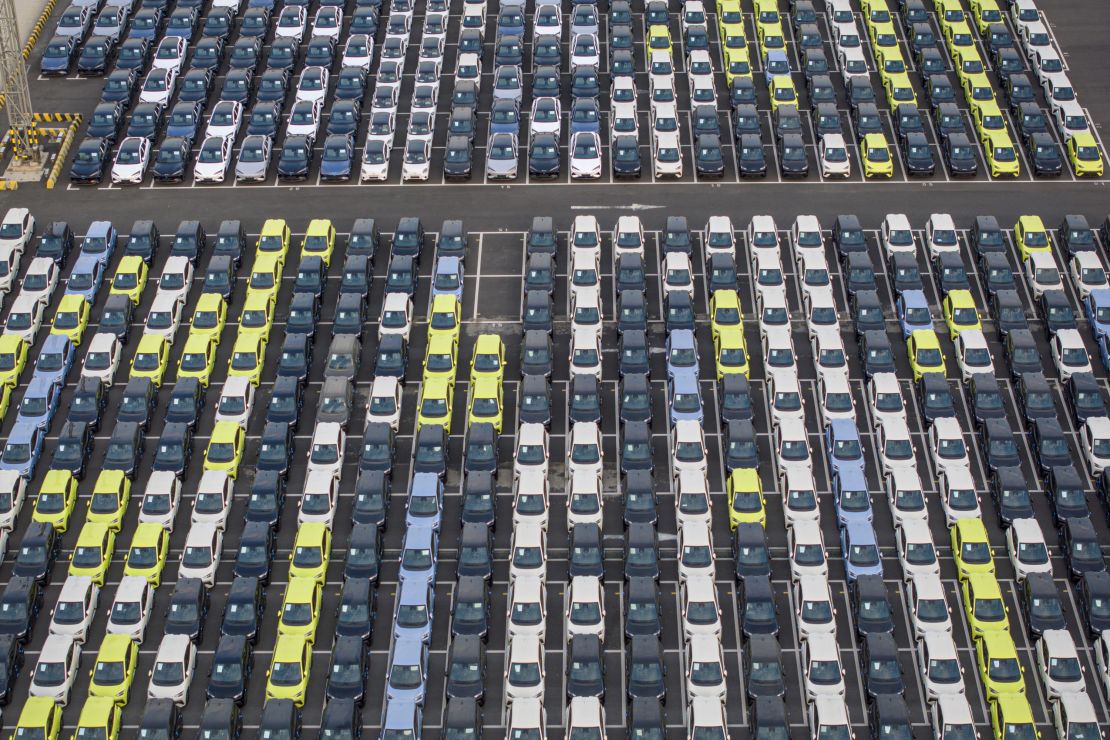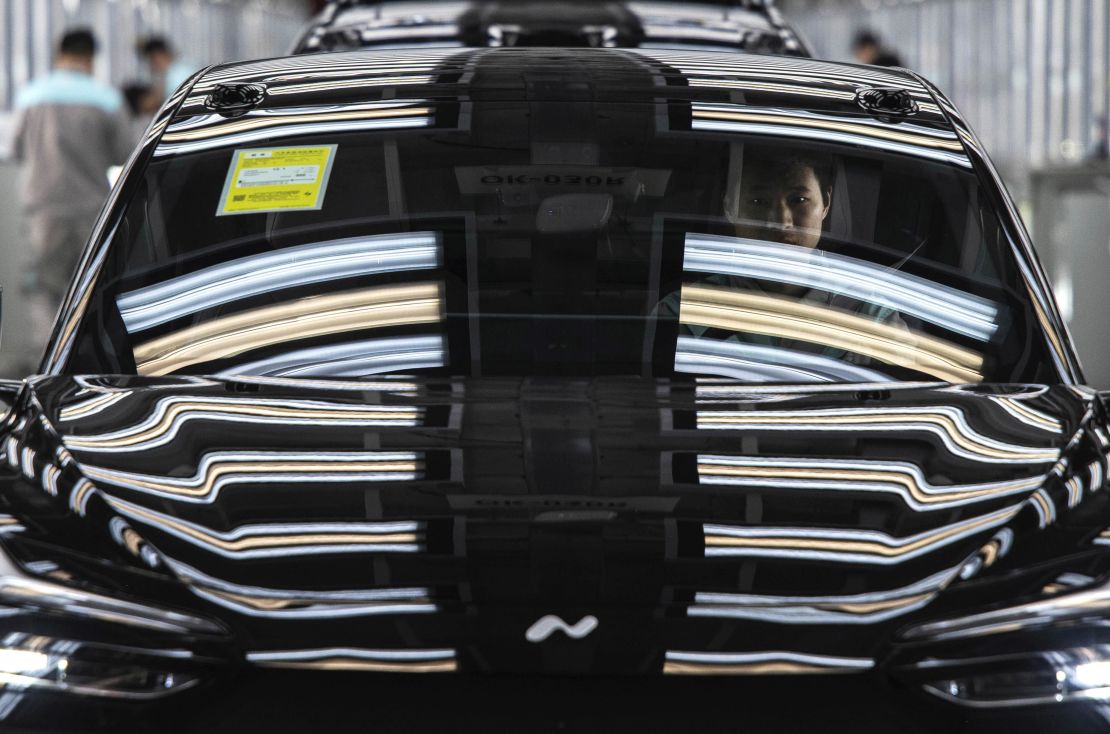Hong Kong
CNN
—
China has put export restrictions on technologies critical for producing electric vehicle batteries, in a move to consolidate its dominance in the sector that has contributed to the country’s lead in the global EV race.
Several technologies used to manufacture EV batteries and process lithium, a critical mineral for batteries, were added to the government’s export control list.
Inclusion on the list means transferring the technologies overseas – such as through trade, investment, or technological cooperation – will require a government-issued license, according to a statement by the country’s Commerce Ministry.
The new controls mirror similar restrictions introduced just three months ago on certain rare earth elements and their magnets – critical materials used not only in EV production, but also in consumer electronics and military equipment such as fighter jets. China’s dominance of the rare earths supply chain has emerged as among its most potent tools in a renewed trade war with the United States.
China has emerged as a leading player in the competitive global EV market, thanks in part to its ability to develop high-performance, cost-effective batteries through its comprehensive supply chain, from raw material processing to battery manufacturing.
Huge numbers of car manufacturers around the world use Chinese EV batteries in their vehicles. Chinese EV battery makers accounted for at least 67% of the global market share, according to SNE Research, a market research and consultancy firm.
First proposed in January, the latest licensing requirements have cast uncertainty over Chinese EV makers’ overseas expansion plans, particularly as markets like the European Union have employed tariffs on Chinese car exports to push them to set up shop there. Many Chinese battery makers also have plans to localize production in markets such as Southeast Asia and the US.
The Commerce Ministry said the restrictions “aim to safeguard national economic security and development interests, and promote international economic and technological cooperation.”
Liz Lee, an associate director at Counterpoint Research, said the move “deepens the emerging geopolitical tech decoupling beyond materials to process IP (intellectual property).” She added that this could accelerate efforts by the US, EU and others to boost localization of precursor materials and metal refining capabilities.

China’s CATL, the world’s largest EV battery producer and a key supplier of Tesla, has plants in Germany and Hungary and has plans for a joint venture factory in Spain with Stellantis, the owner of Fiat and Chrysler. It is also licensing its technology to be used in a Ford EV battery plant under construction in Michigan.
Meanwhile, Chinese EV giant BYD, which manufactures its own battery and surged past Tesla in 2024 sales to become the world’s largest EV maker, has EV production facilities around the world, from Hungary and Thailand to Brazil.
And Gotion, another major EV battery maker in China, has plans to build a production plant in Illinois.
Analysts said the true impact of the new export controls remains uncertain, as details are still unclear.
Lee noted the restrictions “appear to target upstream process technologies… rather than battery cell and module manufacturing.”
Since CATL’s plants in Germany and Hungary focus on cell and module production and do not appear to replicate the restricted processes locally, the near-term effect may be limited, she said.
For BYD, which only assembles battery packs overseas and does not manufacture battery cells abroad, the controls do not appear to affect operations at this stage, Lee added.
Vincent Sun, senior equity analyst at Morningstar covering China’s EV sector, said the ultimate impact would depend on how easily companies can obtain permits – something that “may take some extra time to see.”
CNN has reached out to CATL, BYD, Gotion and Ford for comment.
China’s dominance in EV batteries
One part of the newly announced restrictions surrounds the battery cathode production technology for the making of lithium iron phosphate (LFP) batteries, a type of lithium-ion battery that has become increasingly popular in EVs in the last five years for its lower price and greater safety. Another part focuses on the processing, refinement and extraction of lithium.

China dominates the production of LFP batteries and the processing of lithium globally, according to Fastmarkets, a United Kingdom-based research company. Last year, it held 94% market share for LFP production capacity and provided 70% of global processed lithium production.
But while LFP batteries amounted to 40% of the global EV market by capacity, adoption of them is more prevalent in EVs made by Chinese manufacturers than elsewhere, according to Adamas Intelligence, a data analysis and consultancy firm focusing on critical minerals and batteries.
James Edmondson, vice president in research at IDTechEx, a research firm, told CNN that despite LFP’s lower energy density, its much lower cost, compared with its common alternative battery made of nickel, manganese, and cobalt, has made it “a staple in lower-cost vehicles” and there are plans for greater adoption by EU and US automakers.
China’s dominance in LFP production means that “even for LFP produced outside of China, Chinese suppliers would still often play a part in the production of precursors to LFP cathodes,” he said.
China holds a “significant lead” in the technology itself, as shown by BYD’s “Super E-Platform” that promised a 250-mile range on just a five-minute charge, Edmondson added. The technology outperforms Tesla’s Superchargers, which take 15 minutes to deliver 200 miles.
Not to be outdone, CATL followed in April with a more competitive product, an upgraded LFP battery that provides an even longer range of 320 miles with the same charging time.

